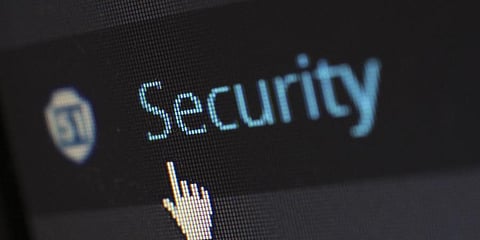

NEW DELHI: The technical committee appointed by the Supreme Court issued a public notice on Sunday asking the citizens who suspected that their mobile devices were infected by Pegasus malware to come forward and contact the panel.
The public notice was published in newspapers across the country on Sunday and said, "In case the committee feels your reasons for suspicion of the device being infected with the malware compel a further investigation, then the committee shall request you to allow examination of your device."
It was on 27 October 2021 that the apex court had set up the Technical Committee to probe the usage of Pegasus against Indian citizens after a number of petitions, including by those whose phones had been targeted by the spyware, was filed before the court.
The bench headed by Chief Justice of India NV Ramana criticised the Union government for its refusal to clarify whether it had purchased and used the spyware, and said it had to accept the prima facie case of the petitioners, including victims of Pegasus hacking, and examine their allegations.
The Technical Committee will be overseen by former apex court judge Justice RV Raveendran, and has been asked to prepare a report after a thorough inquiry and submit it to the Supreme Court "expeditiously."
The petitions before the court had sought a court-monitored probe into the allegations, which arose after the revelations about Pegasus usage reported around the world by the Pegasus Project.
In its first response to the Pegasus snoopgate controversy, the Ministry of Defence in August 2021 said it did not have any transaction with Israel-based NSO Group, which owns the spyware.
The clarification came from Minister of State for Defence Ajay Bhatt saying “Ministry of Defence has not had transactions with NSO Group technologies,” in a written statement to the Parliament.
Over 1,000 Indian mobile numbers were on the list of possible targets.
NSO Group, an Israeli surveillance software company, has been under increasing attack following allegations that its Pegasus phone spyware was used for surveillance on journalists, activists and political leaders in several countries including India.
NSO had denied any wrongdoing. The opposition parties targetted the central government on the issue.
The controversy erupted after an investigation by a global media consortium based on leaked targeting data claimed evidence that the military-grade malware from the NSO Group was being used to spy on politicians, journalists, human rights activists and others.
Earlier, the Apex court in its order had said any violation of privacy can be only if it’s absolutely necessary. "The considerations for the usage of such alleged technology ought to be evidence-based. In a democratic country governed by the rule of law, indiscriminate spying on individuals cannot be allowed except with sufficient statutory safeguards, by following the procedure established by law under the Constitution."
Expressing concerns about the effect on free speech that the use of such technology could have on regular citizens and the press in particular the court had said, "It is undeniable that surveillance and the knowledge that one is under the threat of being spied on can affect the way an individual decides to exercise his or her rights. Such a scenario might result in self-censorship. This is of particular concern when it relates to the freedom of the press, which is an important pillar of democracy. Such a chilling effect on the freedom of speech is an assault on the vital public watchdog role of the press, which may undermine the ability of the press to provide accurate and reliable information."